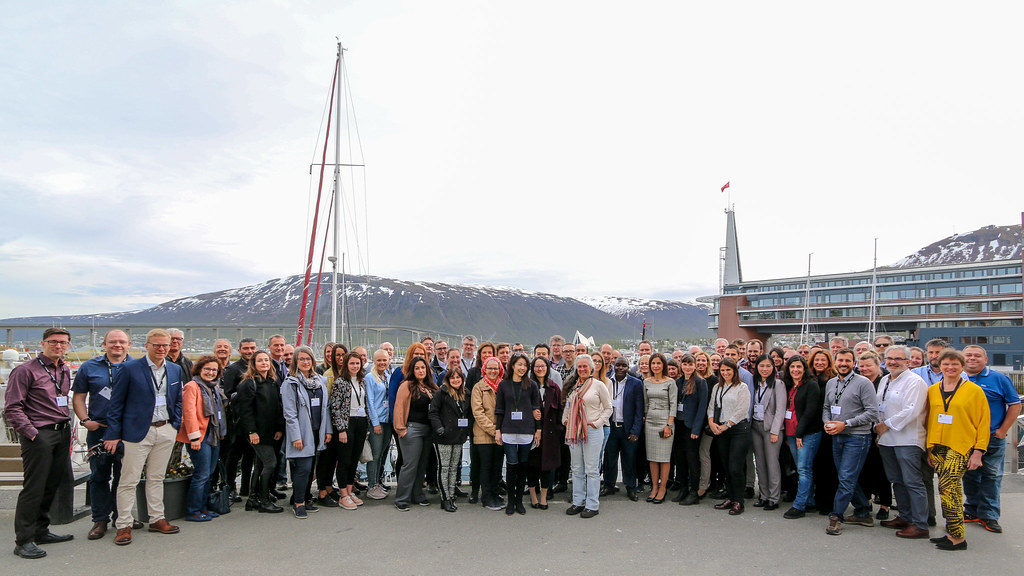Two Rhodes University scientists, Dr Cliff Jones and Professor Peter Britz, both from the Ichthyology and Fisheries Science department have joined over 70 scientists and industry professionals from 16 countries in Tromsø, Norway to launch the European Union (EU) funded AquaVitae project.
AquaVitae is a new research and innovation project funded by the EU’s Horizon 2020 programme. The project consortium consists of 36 partners from 16 different countries, spread across four continents. In addition to Europe, partners are situated in countries bordering the Atlantic Ocean; including Brazil, South Africa, Namibia, as well as in North America. Horizon 2020 is the biggest Research and Innovation programme of the EU with nearly 8-million US Dollars of funding for the period 2014-2020. It selects outstanding research proposals for taking great ideas from the lab to the market.
The project’s purpose is to introduce new low trophic species, products and processes in marine aquaculture value chains across the Atlantic. The five chosen value chains include macroalgae, Integrated Multi-Trophic Aquaculture (IMTA), echinoderm species (e.g. sea urchins), shellfish and finfish. IMTA is a process that farms several species together using waste from one species as feed for another.
The project is coordinated by Nofima, the Norwegian Institute of Food, Fisheries and Aquaculture Research. Project Coordinator, Philip James said: “It is an exciting challenge to bring together industry and research partners from across the length and breadth of the Atlantic to address relevant societal challenges. The value chains were selected because of their promising contributions to sustainable food and feed production. There is a lot of potential in these value chains and we wish to discover new ways to improve them”.
Over the next four years, the consortium will work to increase aquaculture production of low-trophic species in and around the Atlantic Ocean in sustainable ways. They will also work closely with South African industry partners Marifeed (Pty) Ltd and Wildcoast Abalone (Pty) Ltd in promoting the development of the South African abalone industry. According to Jones, this is the largest aquaculture industry in South Africa, which is the largest abalone farming industry outside of Asia.
Jones said: “The goals of the South African researchers are to improve processes that are aimed at making the industry more environmentally and economically sustainable. Their focus is on developing Integrated Multitrophic Aquaculture (IMTA) systems, where the waste of one trophic level acts as a feed source for the next. For example, sea-cucumber is a deposit feeder that could be integrated into the abalone production system. Sea-cucumber is considered a delicacy in parts of Asia, where it fetches considerably economic return; so, the waste water is cleaned and high-value products are produced. Similarly, Drs Neill Goosen and Khalid Salis from Stellenbosch University in South Africa are also involved in this project. Their focus remains on recovering calcium carbonate produced from shell-fish and recycling by-products from aquaculture back into fish feeds or for other uses, such as agricultural fertiliser”.
The project will implement a multi-factor approach to ensure stakeholder involvement in all phases of the project. Companies act as partners of the consortium together with research institutes and universities, which will also help to establish a durable aquaculture industry and research network around the Atlantic Ocean.



